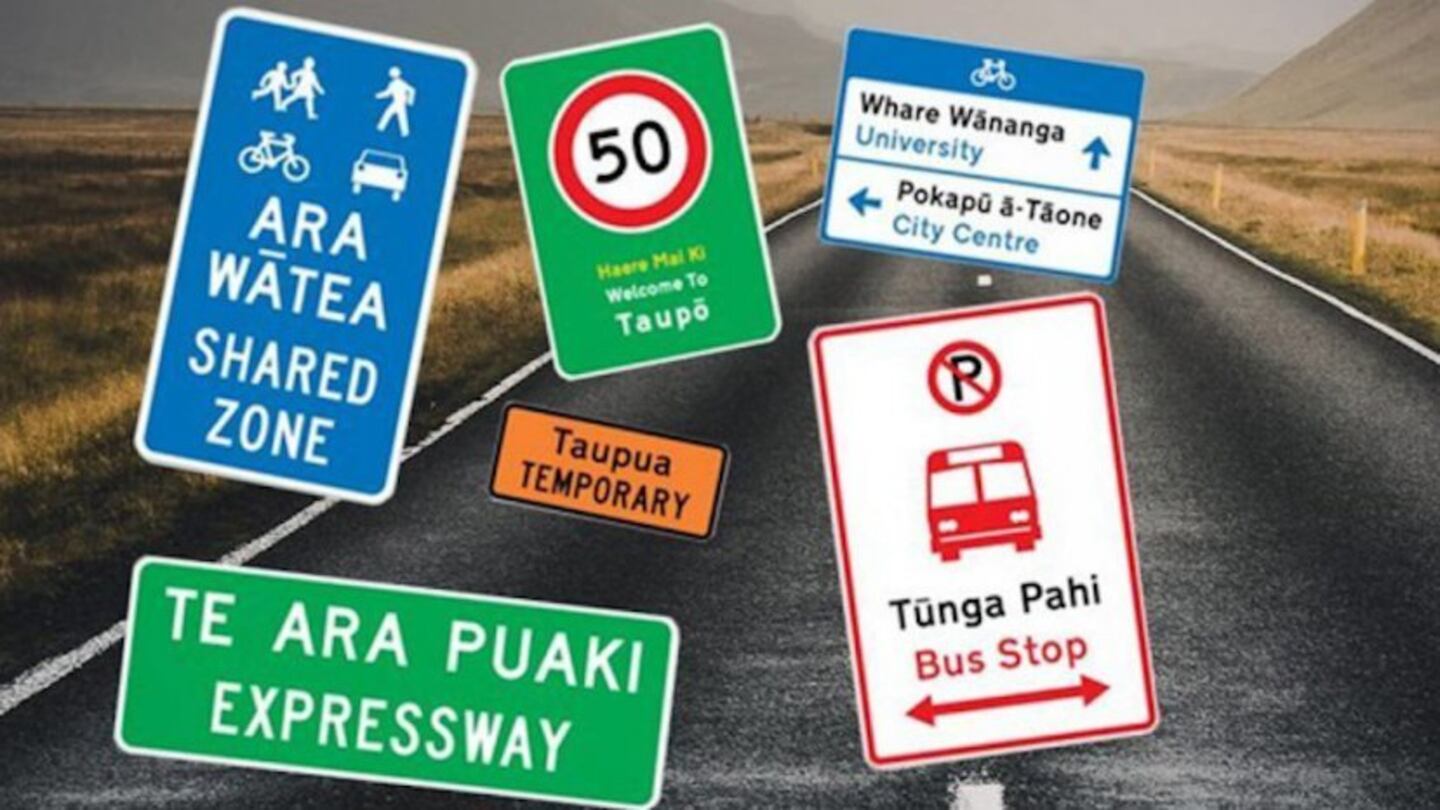Te Mātāwai and Waka Kotahi have released a range of bilingual traffic signs for public consultation. Photo / Te Ao Māori News / File
In a unanimous decision, the Dunedin City Council has thrown its support behind Waka Kotahi NZ Transport Agency's initiative to introduce increased bilingual signage.
The agency has launched a consultation process seeking public input on the proposal, which aims to implement bilingual signage in certain categories, such as destination indicators and highlighting cycle or bus lanes.
The plans came under fire from National, with spokesperson Simeon Brown saying the signs would be confusing, and that “We all speak English, and they should be in English.”
Act leader David Seymour said “the point of road signs is to communicate information in a language drivers understand, not to virtue-signal, not to socially engineer”.
Council members expressed their endorsement for incorporating more te reo Māori into public signage, emphasising it would contribute to normalising the use of the indigenous language as a vibrant and living part of New Zealand's cultural fabric.
Cr Christine Garey, a vocal advocate of the move, hailed the decision as "another mokopuna decision - a decision for generations to come." She urged fellow council members to fully embrace this initiative and move forward with it swiftly.
Absent councillor oppposed
Cr David Benson-Pope chimed in, noting that the issue had unfortunately become a catalyst for bigotry and racism. He dismissed the claims that bilingual signage posed safety risks, deeming them baseless and unfounded.
Echoing the sentiment, Cr Mandy Mayhem voiced her belief that the introduction of bilingual signage was long overdue.
During the question-and-answer session, council chief executive Sandy Graham said putting Māori before English reflected cultural appropriateness.
Some members were more conservative Cr Brent Weatherall stressed being "respectful" towards those who may not have a full understanding of te ao Māori.
Cr Lee Vandervis, who recently made a social media post indicating his opposition to the council's submission, was absent from the meeting, essentially abstaining from the vote.
Commenting on Vandervis’ post, Cr Steve Walker branded it a “dog whistle,” while also in favour of the Waka Kotahi proposal.


